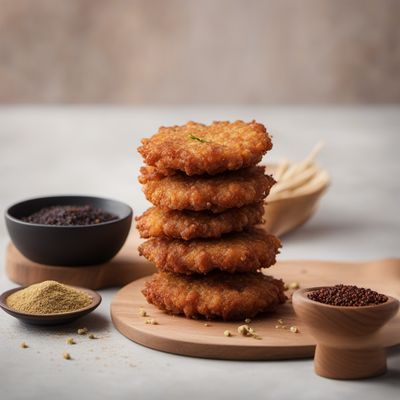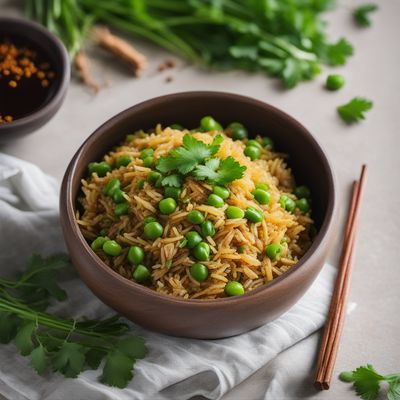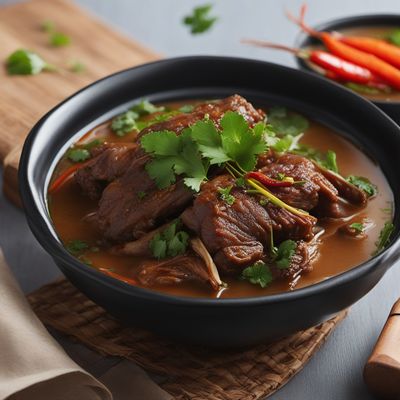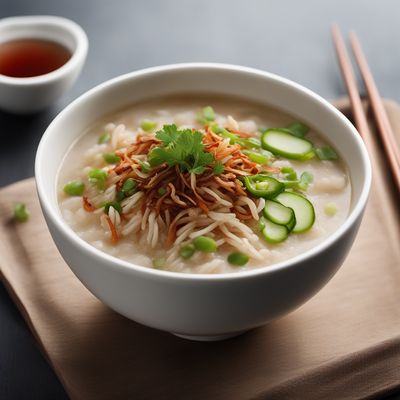
Cuisine
Malaysian Chinese cuisine
Malaysian Chinese cuisine is a fusion of Chinese and Malaysian flavors, with a focus on fresh ingredients and bold flavors. It is characterized by the use of spices and herbs, such as ginger, garlic, and chili peppers, which give the dishes their unique flavor. Malaysian Chinese cuisine is also known for its use of seafood, which is abundant in Malaysia. Rice and noodles are staple foods in Malaysian Chinese cuisine, and are often served with a variety of meats and vegetables.
Typical ingredients
Rice, Noodles, Seafood, Pork, Chicken, Beef, Vegetables, Soy sauce, Oyster sauce, Hoisin sauce, Sesame oil, Ginger, Garlic, Chili peppers
Char kway teow is a popular Malaysian Chinese dish that consists of stir-fried rice noodles with shrimp, Chinese sausage, bean sprouts, and eggs. It is often served with chili paste and lime wedges.
More cuisines from this region...
Malay cuisine, Eurasian cuisine of Singapore and Malaysia, Arab cuisine, Malaysian Indian cuisine, Peranakan cuisine, Sarawakian cuisine, Sabahan cuisine
History
Malaysian Chinese cuisine has a long history that dates back to the 15th century, when Chinese traders first settled in Malaysia. Over the centuries, Malaysian Chinese cuisine has evolved to incorporate local ingredients and cooking techniques, resulting in a unique fusion cuisine. Malaysian Chinese cuisine is an important part of Malaysian culture, and is often served during festivals and celebrations.
Cultural significance
Malaysian Chinese cuisine is an important part of Malaysian culture, and is often served during festivals and celebrations. It is also a popular cuisine in neighboring countries, such as Singapore and Indonesia. Malaysian Chinese cuisine is known for its bold and spicy flavors, and is often considered comfort food.
Health benefits and considerations
Malaysian Chinese cuisine is generally healthy, as it is based on fresh ingredients and does not use a lot of oil or fat. However, some dishes may be high in sodium or sugar, so it is important to eat them in moderation. Some Malaysian Chinese dishes may also contain peanuts or other allergens, so it is important to check the ingredients before consuming them.
Malaysian Chinese cuisine recipes Browse all »

Malaysian Chinese-style Beef Rendang
Spicy and Fragrant Beef Rendang with a Malaysian Twist

Crispy Garlic Fritters
Garlic Delight: Crispy Fritters with a Malaysian Twist

Malaysian Chinese Style Cheesy Toast
Savory Melting Cheese Toast with a Malaysian Twist

Heusuppe with a Malaysian Chinese Twist
Malaysian Chinese Herbal Soup with a European Touch

Malaysian Chinese Style Pea Rice
Fragrant Pea Rice with a Malaysian Twist

Malaysian Chinese Style Queijada
Creamy Coconut Queijada with a Malaysian Twist

Malaysian Chinese Squid and Potato Salad
Savory Delights: Malaysian Chinese Squid and Potato Salad

Malaysian Chinese Style Spiced Plum Pudding
Fragrant Spiced Plum Pudding: A Malaysian Chinese Delight

Malaysian Chinese-style Braised Lamb Head
Spicy and Fragrant Braised Lamb Head with Malaysian Chinese Flavors

Spicy Pork Stir-Fry with Malaysian Flavors
Fiery Pork Rendang Stir-Fry: A Malaysian Twist on Spicy Pork

Malaysian Chinese Style Rice Porridge
Savory Comfort: Malaysian Chinese Rice Porridge

Malaysian Chinese Style Sweet Potato Halwa with Fried Mantou
Golden Delight: Malaysian Chinese Sweet Potato Halwa with Crispy Fried Mantou